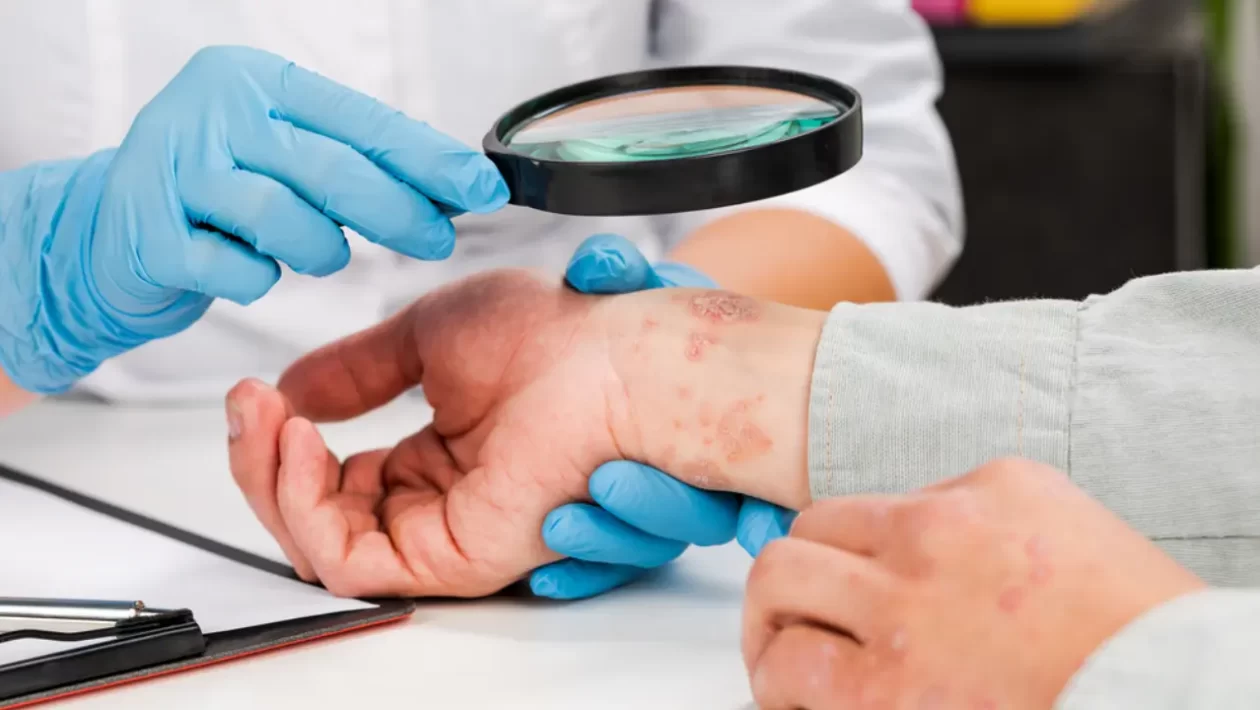A chronic autoimmune disease that impacts millions of people globally is psoriasis. This non-contagious skin condition can present itself in several ways, leaving red, itchy, and scaly patches of skin. Psoriasis can significantly affect a person’s general well-being and self-esteem in addition to its physical manifestations. However, those who have psoriasis can discover hope and accept a path to healing with the appropriate information, support, and proactive management. The purpose of this article is to educate readers on psoriasis, including its causes, signs, and practical treatments.
Understanding Psoriasis
Psoriasis is an immune-mediated disorder that causes fast skin cell turnover as a result of the immune system mistakenly attacking healthy skin cells. The formation of thick, inflammatory patches of skin covered in silvery scales is the outcome of this increased cell proliferation. Although the precise cause of psoriasis is unknown, genetic factors, environmental triggers, and immune system malfunction all play major roles in how it manifests.
Types and Symptoms
Psoriasis can take on a variety of shapes, including plaque, guttate, pustular, inverted, and erythrodermic psoriasis. Plaque psoriasis is the most prevalent kind and is distinguished by elevated, crimson plaques coated in white scales. These plaques frequently develop on the lower back, scalp, elbows, knees, and nails.
Psoriasis symptoms go beyond only the look of the skin. Psoriasis sufferers could experience itchiness, burning, dryness, and sometimes pain in the affected regions. Psoriasis can cause feelings of self-consciousness, worry, and a diminished quality of life, therefore its emotional and psychological effects cannot be ignored.
Nurturing Skin Wellness:
Despite the fact that there is no treatment for psoriasis, adopting a thorough management strategy can assist reduce symptoms and advance skin wellness. Here are some tactics that could work:
- Creating a Skincare Routine: Establish a mild skincare routine that includes cleansing, hydrating, and protecting the skin. In order to preserve the skin’s moisture barrier and reduce irritability, use gentle, fragrance-free cleansers, moisturizers, and sunscreen.
- Topical Treatments: Topical therapies can help lessen swelling, irritation, and scaling. Examples include corticosteroids, retinoids, calcipotriol, and moisturizers with salicylic acid or urea. A dermatologist may prescribe these medications, and they ought to be used as prescribed.
- Phototherapy: Under medical supervision, phototherapy includes exposing the skin to particular ultraviolet light wavelengths. This therapy can lessen inflammation and slow down uncontrollable skin cell proliferation. Depending on each patient’s demands, several phototherapy techniques, including UVB and PUVA, may be suggested.
- Medication: Oral or injectable drugs may be administered to treat more severe psoriasis symptoms. To decrease inflammation and slow down the creation of new skin cells, these drugs act by specifically targeting certain immune system components.
- Modifications to lifestyle: Leading a healthy lifestyle can help you manage your psoriasis. Managing stress, exercising frequently, giving up smoking, and eating a well-balanced diet full of fruits, vegetables, and omega-3 fatty acids are some strategies.
- Seek Support: In order to cope with the emotional difficulties of living with psoriasis, it is crucial to seek support from medical professionals, support groups, or mental health experts. Connecting with those who have traveled the same path as you can offer insightful advice, supportive words, and coping mechanisms.
Conclusion
Psoriasis may provide difficulties, but it does not characterize those who have it. People with psoriasis can discover hope and recover control over their skin health by comprehending the condition’s nature, adopting a complete care strategy, and seeking help. While there is no known cure, proactive steps like developing a skincare routine, researching effective treatments, changing one’s lifestyle, and getting support can greatly reduce symptoms and improve general well-being. Keep in mind that you are not traveling alone. It is possible to promote skin wellness, empower oneself, and live a full life while having psoriasis with persistence, self-care, and the help of medical professionals and loved ones.




